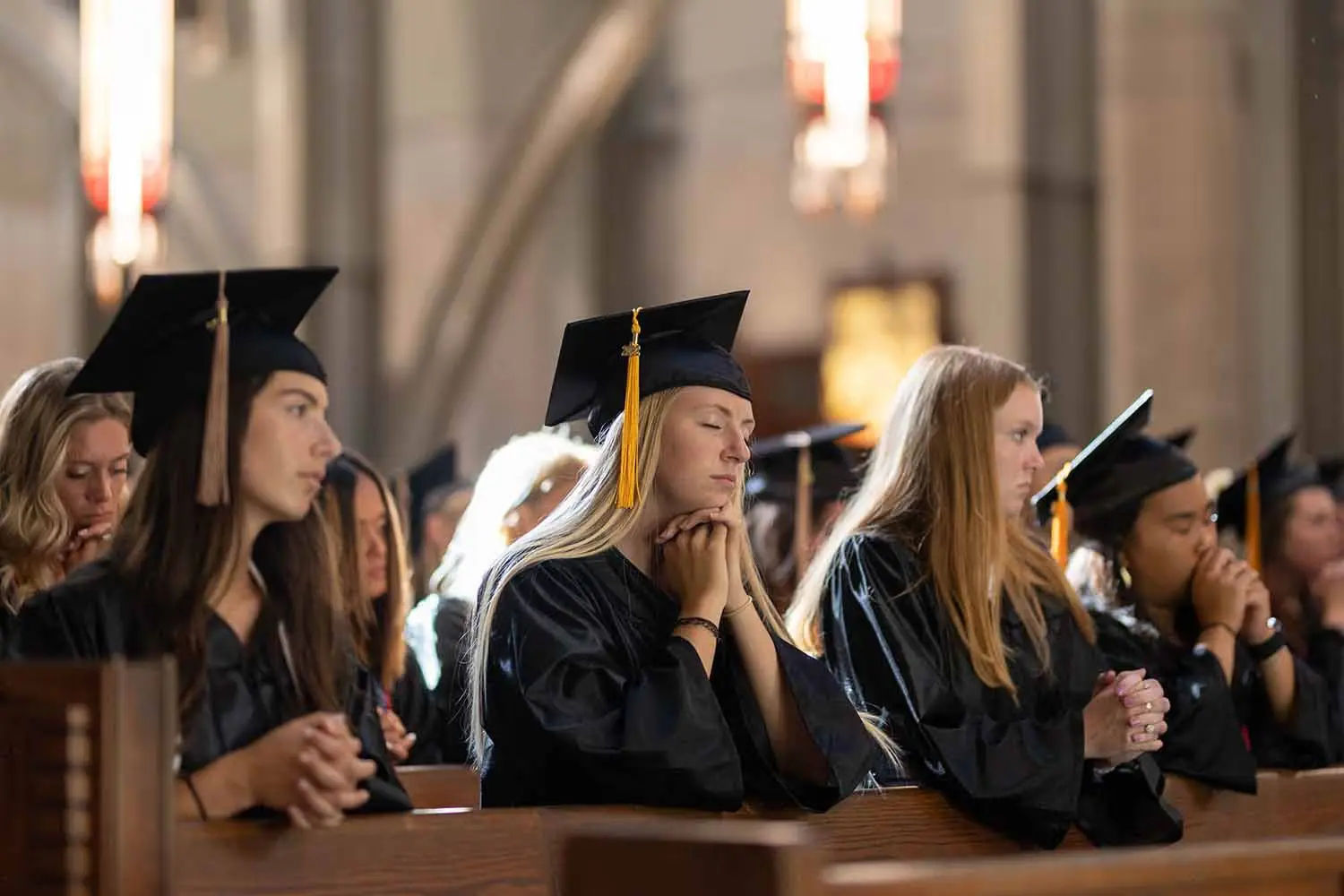
GRADUATE PROGRAMS
PH.D. IN THEOLOGY
God May Be Glorified
Take the next step in your journey to be astounded by the infinite knowledge and wisdom of our God.
Obtain your Ph.D. in Catholic Theology at AMU and you'll benefit from strictly capped class sizes and a distinguished and ecclesiastically approved teaching faculty. Dare to wonder at the greatest mysteries of our faith and prepare yourself for advanced studies or leading roles in Catholic higher education.
Get started today by enrolling in the Doctor of Philosophy (Ph.D.) in Theology program at AMU.
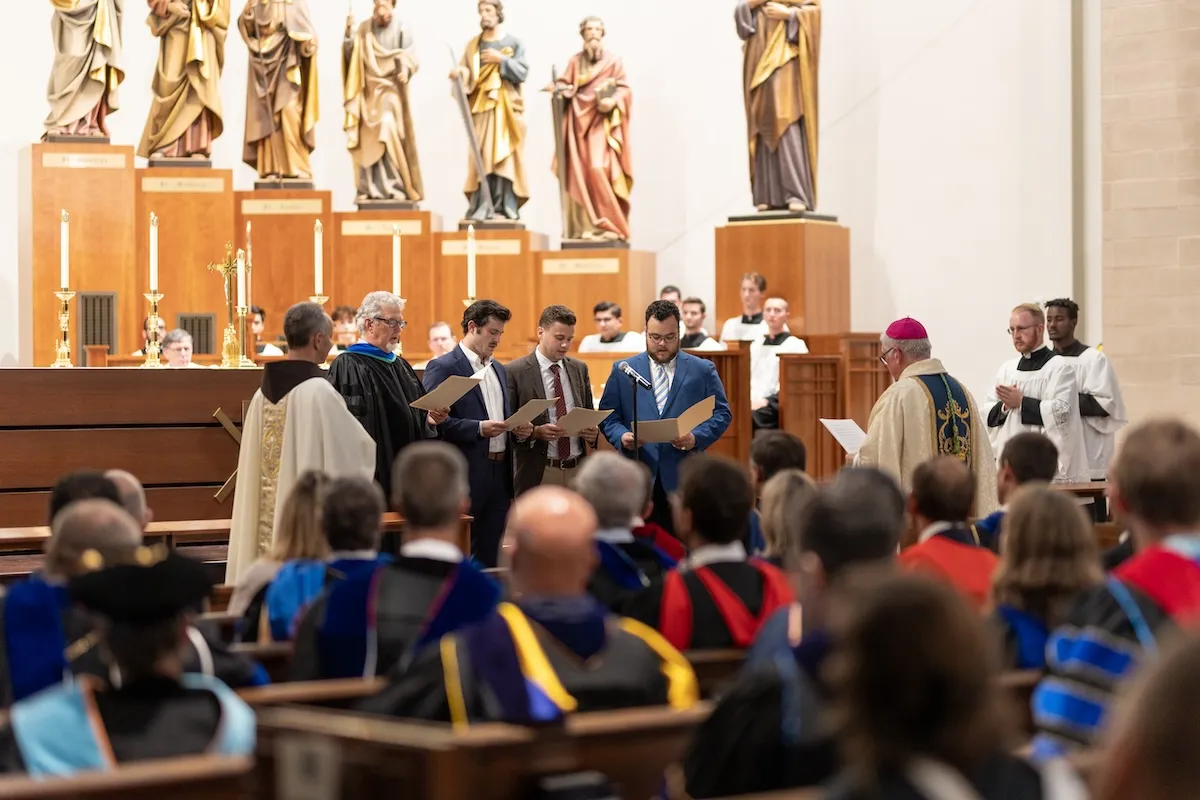
From the Heart of the Church
Ph.D. students at AMU develop the habit and unified vision of theological wisdom according to the unerring magisterial teachings of the Church.
Through the study of biblical, moral and systematic theology, our doctoral students become conversant in the Catholic theological tradition and lay the groundwork for teaching roles in Catholic or non-Catholic institutions of higher education.
Fast Fact: More than 90% of our doctoral graduates are teaching theology at the college, university or seminary level.
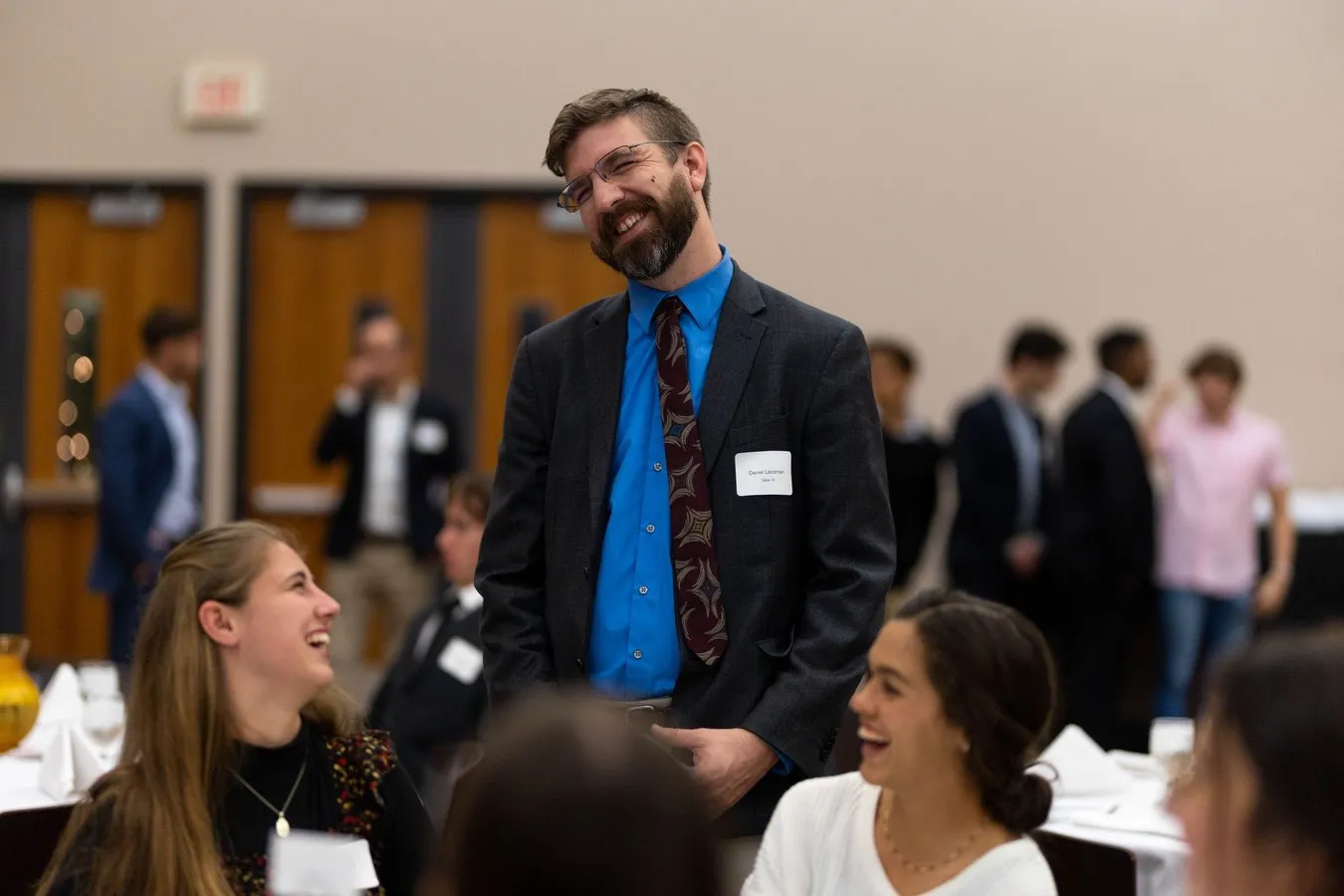
Skills You Will Gain
- A deeper knowledge of Catholic doctrine and practice. Dive into particular areas of Church teaching that interest you, and examine their scriptural and historical foundations. Engage your mind in the pursuit of wisdom through faith and reason.
- Research and Sapiential thinking skills. As an M.A. student at AMU, you'll have multiple research papers that will challenge you to dig deeper into specific theological topics and see the Sapiential unity of Theology.
- Practical ways of growing closer to God. Your ultimate goal in life is not your career (though that's still important), but getting to heaven! By studying theology you're learning more about God, the source of all love and joy!
Plan of Study
Year One and Two
Complete all required coursework and language proficiency courses or exams. By the end of Year Two, submit a comprehensive-exams reading plan to the program director, and schedule the written and oral exams for the following November. Prepare for comps over the summer.
Year Three – Fall Semester
Register for THEO 699: Residential Research & Dissertation (1 credit). Ask a faculty member to be your dissertation director, discuss and refine the topic, and begin your research. Serve as a teaching assistant to an assigned professor (not necessarily your director), and attend an assigned undergraduate course throughout the semester. Take written and oral comprehensive exams in November as scheduled.
Year Three – Spring Semester
Register for THEO 699. Teach one section of an undergraduate course (normally THEO 105: Sacred Scripture, THEO 205: Sacred Doctrine, or THEO 400: Living in Christ: Moral Theology). Ask two professors to be readers on your dissertation board (one of these may be external to the department or to the university). Submit your dissertation proposal to the program director and to the dissertation director. Once the proposal has been approved by your board, and both the proposal and the composition of your board have been validated by the entire Theology faculty, you may begin writing.
Year Four
Register for THEO 699. Teach one section of an undergraduate course per semester (normally THEO 105: Sacred Scripture, THEO 205: Sacred Doctrine, or THEO 400: Living in Christ: Moral Theology). Complete and defend the dissertation. The "Application for Ph.D. Degree" form is available from the registrar. Submit a degree application form and the graduation fee early in the semester in which the student intends to graduate.
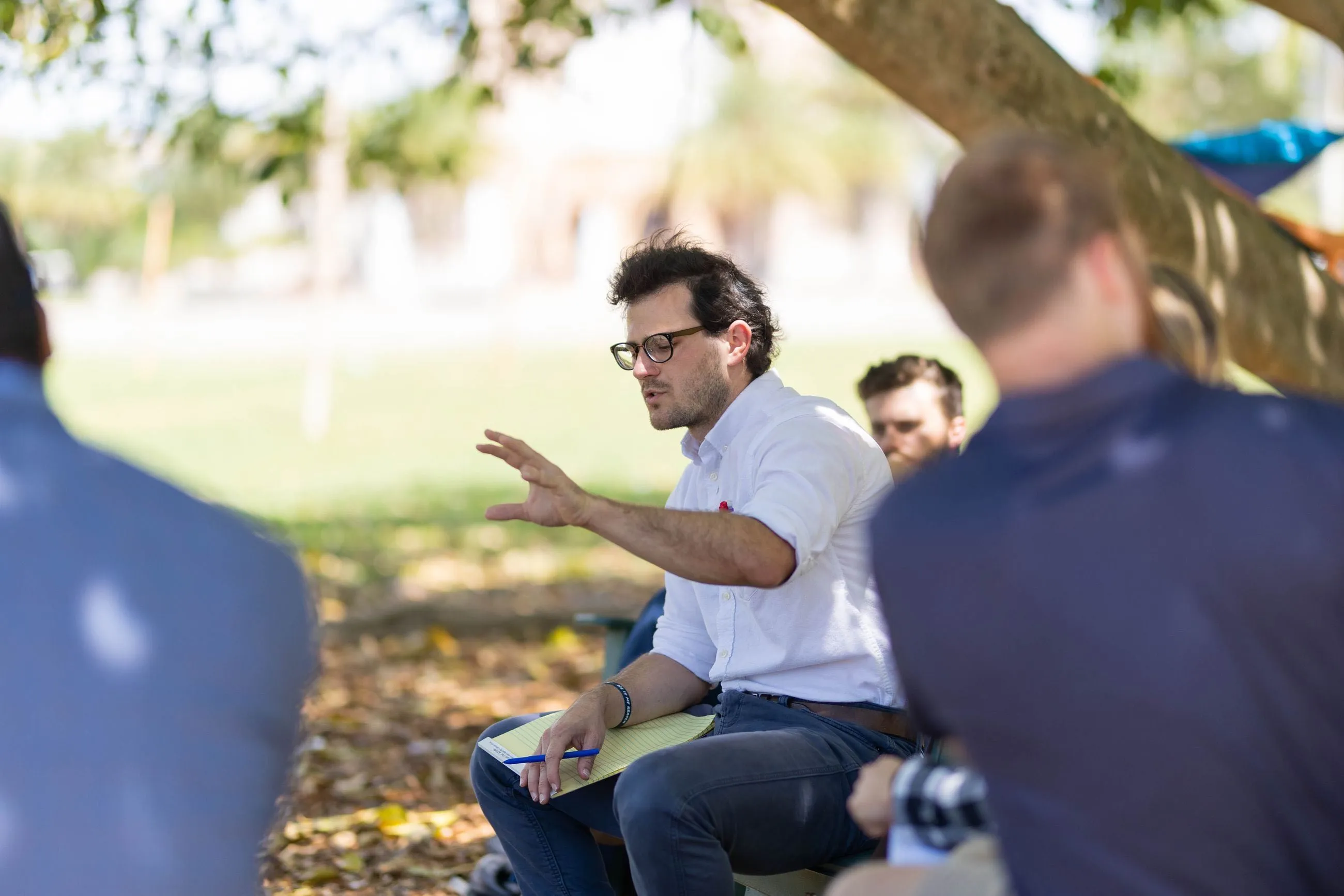
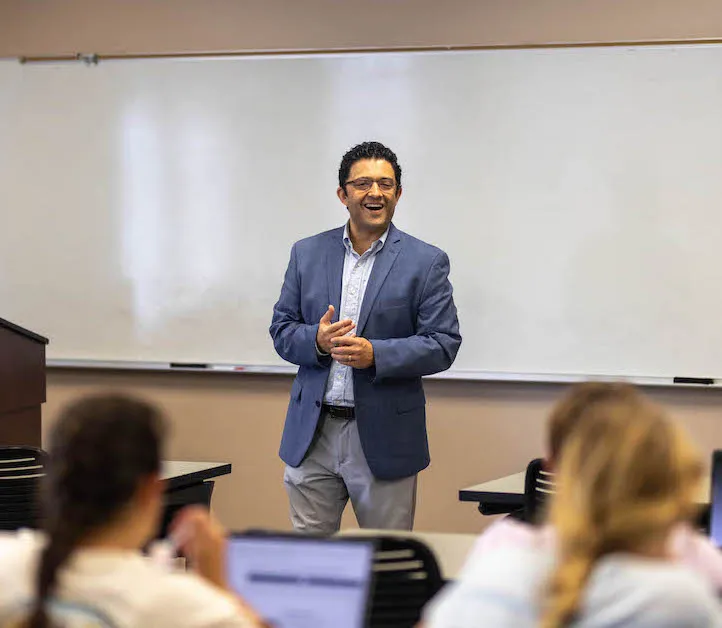
Fast Facts
- Incoming classes to AMU's faithfully Catholic and intellectually challenging Ph.D. program are capped at four doctoral students per year to ensure individualized attention and mentoring throughout each student's time here.
- Our Ph.D. students study under Ave Maria's accomplished faculty, almost all of whom hold terminal degrees and have prestigious records of publication.
- All of our theology faculty receive the canonical mandatum when they are hired.
- Doctoral students at Ave Maria University take part in weekly colloquia on the ancients and the moderns, focusing on the interplay between philosophical and theological inquiry, Christian and pre-Christian.
- Over 90% of our doctoral graduates are teaching theology at the college, university, or seminary level.
- Potential careers for graduates from AMU's Ph.D. program in Catholic Theology include being a Director of Religious Education, a Diocesan Leader, a Theology Professor, and Religious Life.
- Ave Maria University boasts a world-class theological and philosophical library.
- Ave Maria University is a recognized Newman Guide school and is accredited by the Southern Association of Colleges and Schools Commission on Colleges to award baccalaureate, masters, and doctoral degrees. (Contact the Commission on Colleges at 1866 Southern Lane, Decatur, Georgia 30033-4097 or call 404-679-4500 for questions about the accreditation of Ave Maria University).
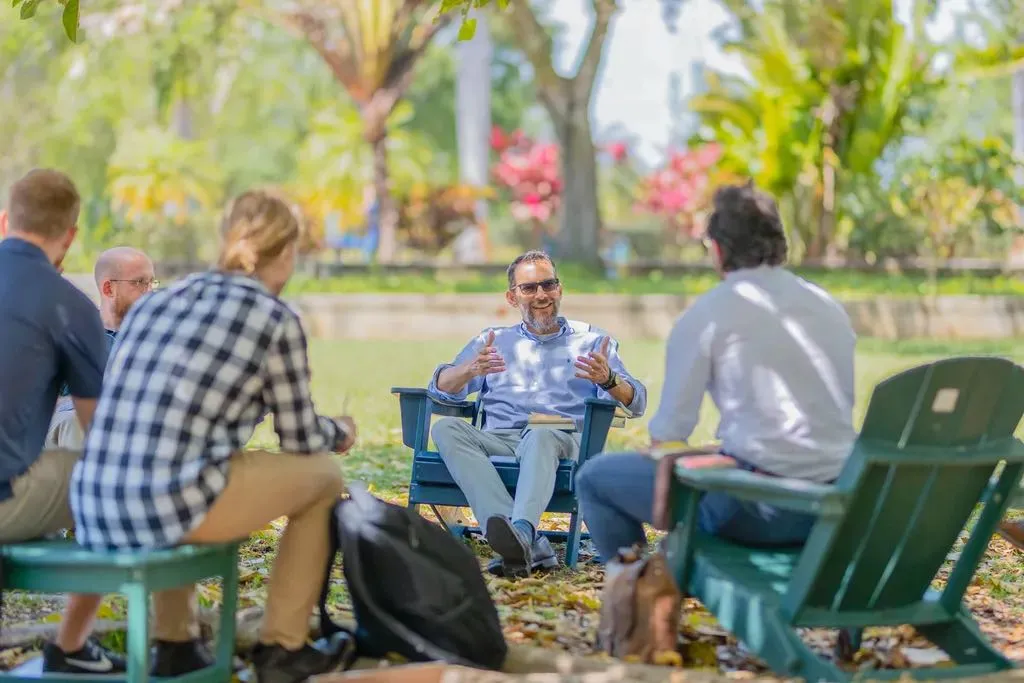
Program Requirements
- Twelve doctoral-level theology courses (48 credits), maintaining a GPA of 3.0 or higher
- Four courses (16 credits) in candidate's major (systematic or moral)
- Three courses (12 credits) in candidate's minor (biblical, systematic, or moral)
- Two courses (8 credits) in the remaining area (biblical, systematic, or moral)
- Two required courses: THEO 691 Ancients, and THEO 692 Moderns (8 credits)
- One additional course (4 credits)
- Reading proficiency in Latin, Greek, and one modern language (French, German, or Italian), demonstrated by proficiency exams or approved AMU courses (with a grade of B- or higher)
- Successful completion of oral and written comprehensive exams
- Successful defense of an approved dissertation
Additional Info
Candidates who are judged to have significant lacunae in their prior academic formation in theology or philosophy will be directed to take courses that complement the Ph.D. curriculum.
Throughout the residency candidates are expected to maintain full-time status and to devote themselves to studies as to a full-time occupation. They are encouraged to take advantage of the sacramental and spiritual life of the university as an integral element in their theological formation.
The tuition-remission scholarship and living stipend remain in effect throughout the four-year residency, provided the candidate is in good academic standing, maintains full-time status, and follows the above course of study in a timely fashion. If the dissertation has not been successfully defended by the last day of August following Year Four, the candidate will need to register for THEO 698 Non-residential Research & Dissertation, and pay tuition (1 credit hour) and any applicable fees, for each subsequent semester, in order to remain enrolled in the program until the dissertation has been successfully defended. The faculty is under no obligation to accept for defense any draft of a dissertation submitted more than eight years after matriculation.
Continuance in the program is subject to faculty review each semester. Candidates must maintain good academic standing (GPA of 3.0 or higher) to retain the tuition-remission scholarship and the living stipend. If a candidate receives a final grade of C+ or lower in any course, he or she will be required to retake the course or, at the program director's discretion, to resubmit selected assignments. A candidate who receives two or more grades of C+ or lower in a single academic year will be discontinued from the program.
If personal circumstances require the interruption of studies, the student should inform the program director immediately and must apply for a leave of absence. At the director's discretion, a leave may be granted for a fixed period. A student who interrupts studies without an approved leave of absence is considered to have withdrawn from the program and must reapply if he or she wishes to return.
Admission Requirements
- Applicants to the Ph.D. Program must possess an M.A. in Theology or a related discipline (such as Philosophy or Classical Languages) and should have completed at least 12 credits of undergraduate or graduate coursework in philosophy. They must submit:
- Official GRE Score Report from ETS
- Seal-bearing transcripts (from all institutions attended)
- Three letters of recommendation
- Statement of intent (1500-words): intellectual autobiography, academic/research interests and goals, and Christian-ecclesial commitment
- Description of professional and academic experience
- Academic writing sample of theological or philosophical nature (minimum 8 pages)
- TOEFL Score Report from ETS (for international applicant if English is not the first language)
- Those accepted into the program may be offered a tuition scholarship and/or stipend for research/teaching assistantships. Regardless, all students must pay the technology fee, the activities fee, and the graduation fee.


